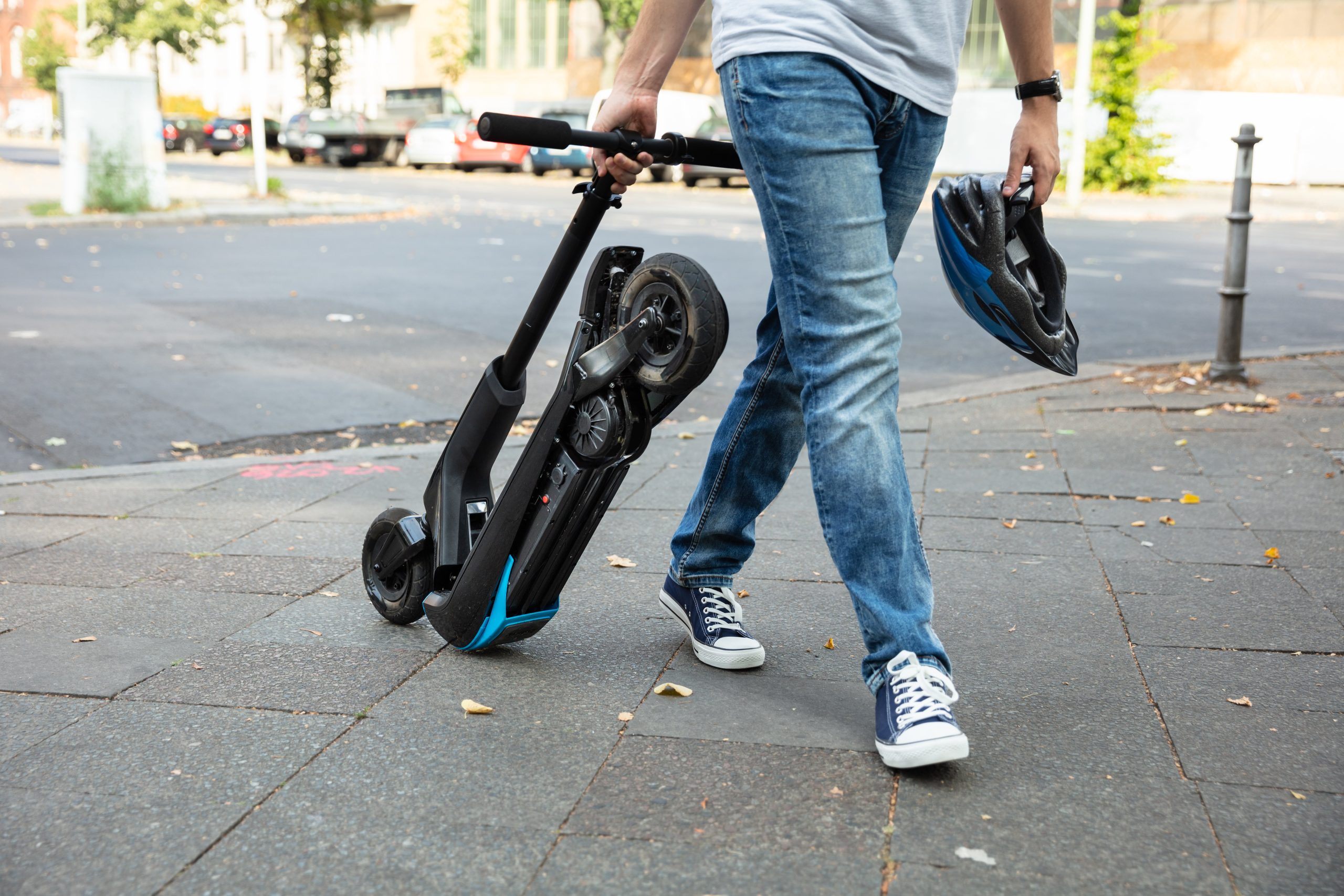The main types of scooter batteries are lead-acid, nickel-metal hydride (NiMH), and lithium-ion (Li-ion). Each type offers different benefits and drawbacks in terms of cost, performance, and maintenance.
Scooter batteries serve as the lifeblood of electric scooters, powering them for your daily commute and adventures. Lead-acid batteries, familiar for their affordability and reliability, have long been the standard. However, they’re heavy and have a shorter lifespan compared to other types.
Nickel-metal hydride batteries strike a balance with moderate weight, better capacity, and a longer life cycle than lead-acid batteries, but they are not as commonly used due to their higher cost and lower energy density. The latest innovations have brought lithium-ion batteries to the forefront. These are revered for their lightweight, high energy density, and long-lasting charge capacities, despite being the priciest of the trio. Choosing the right battery type is crucial for optimising your scooter’s performance and ensuring a smooth ride tailored to your needs and budget.
Understanding Battery Chemistry
Exploring the diverse types of scooter batteries unveils the intricacies of battery chemistry. Lead-acid, nickel-metal hydride, and lithium-ion options each offer unique benefits and limitations, shaping scooter performance and maintenance needs.
Lead-acid Batteries
- Durability: These batteries can withstand a significant number of charge cycles if maintained properly.
- Cost-Effectiveness: They offer a high power to cost ratio compared to newer technologies.
- Recyclability: Lead-acid batteries are highly recyclable, which makes them a more environmentally conscious choice.
However, lead-acid batteries are heavier and have a lower energy density compared to other battery types. This could limit the range and speed of the scooter.
Lithium-ion Batteries
| Advantage | Explanation |
|---|---|
| Higher Energy Density | Offer more energy with less weight, enhancing the scooter’s range. |
| Low Maintenance | No routine maintenance is required to ensure their performance. |
| Fast Charging | Capable of faster recharging times compared to other battery types. |
One must note, however, that lithium-ion batteries can be more expensive and require careful handling to ensure safety and longevity.
Nickel-metal Hydride Batteries
- Intermediate Energy Density: Higher than lead-acid but lower than lithium-ion.
- Eco-Friendly: NiMH batteries contain no heavy metals, making them easier to dispose of or recycle.
- Cost: They are more affordable than lithium-ion batteries while offering improved performance over lead-acid.
Despite these benefits, NiMH batteries are not as common due to their heavier weight and lower energy capacity compared to lithium-ion batteries, as well as a more pronounced memory effect, which can reduce their effective lifespan if not managed correctly.
Factors Affecting Battery Performance
Every scooter enthusiast knows that the battery is the heart of the ride. The performance of your scooter’s battery can drastically impact your experience, range, and the longevity of the battery itself. Several critical factors influence how well and how long a battery serves its purpose. Let’s delve into the primary elements impacting battery performance, ensuring your electric scoots along without a hitch.
Choosing The Right Battery For Your Scooter
Your scooter is more than just a mode of transportation – it’s a symbol of freedom, a tool for exploration, and a testament to your commitment to eco-friendly travel. A critical component of your scooter’s performance is undoubtedly the battery. With a plethora of battery types available, selecting the ideal one can be a bit of a challenge. Key factors such as weight, range, and cost efficiency play vital roles in finding the perfect power source for your ride. Let’s delve into these considerations to help you make an informed decision.
Consideration Of Weight
- Lithium-ion batteries are known for their lightweight properties and high energy density.
- Lead-acid batteries, on the other hand, tend to be heavier but are often more affordable.
Maximum Range
The range of your scooter is crucial, especially if you rely on it for longer commutes. To ensure your scooter can go the distance, consider the following:
| Battery Type | Typical Range |
|---|---|
| Lithium-ion | Higher range per charge |
| Nickel-metal hydride | Medium range |
| Lead-acid | Lower range |
Cost Efficiency
- Lithium-ion batteries, while more expensive upfront, typically offer longer lifespans with minimal maintenance.
- Lead-acid batteries may be easier on the wallet initially but could require earlier replacement.
- Nickel-metal hydride batteries present a middle ground in both cost and maintenance.
Maintaining And Extending Battery Lifespan
Understanding the different types of scooter batteries is crucial for enhancing their longevity. Lead-acid, nickel-metal hydride, and lithium-ion variants each demand specific maintenance rituals to ensure optimal performance and extended life cycles.
Eco-friendly And Sustainable Battery Solutions
Eco-friendly scooter batteries are reshaping green transportation with sustainable power options. Lithium-ion and nickel-metal hydride varieties lead the charge, offering efficiency and longevity to environmentally conscious riders.
Conclusion
Navigating through the varied options, scooter batteries optimize your ride with efficiency. From lithium-ion to lead-acid types, each offers unique benefits and trade-offs. Prioritize longevity and performance when selecting, ensuring an informed choice for seamless mobility. Stay powered up and ready to roll on your next urban adventure.

